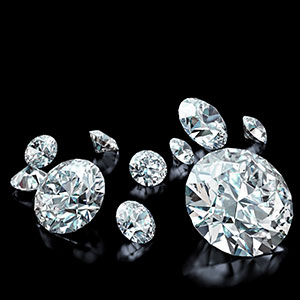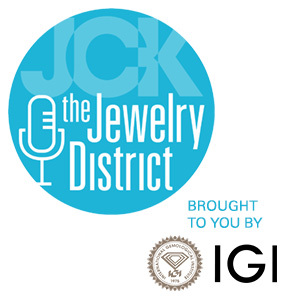
French authorities have ruled that lab-grown diamond sellers can only use the word synthetic to describe their product.
A 2002 decree lists synthetic as the only acceptable qualifier for stones “whose physical, chemical properties and crystal structure correspond essentially to those of the natural stones that they copy.”
In 2022, a lab-grown seller asked France’s Ministry of the Economy, Finance, and Industrial and Digital Sovereignty to modify the rule to allow use of the term laboratory-created. But last October, following consultations with the trade, the ministry decided things should stay as is.
“Many of you (nearly forty, including the professional federations) responded to [our] questionnaire, and we thank you for that,” said a ministry email sent to those who commented. “An analysis of the replies received shows that a majority of players are in favor of maintaining the [2002] decree.”
French jewelry organization UFBJOP was among the parties that submitted input, contending that laboratory-grown and laboratory-created have “no acceptable French-language translations.” By contrast, it called synthetic a “clear term, understandable by the consumer.”
“[A survey of] more than 1,000 French people, aged 25 and over, revealed that 83% of French people were able to give a definition to synthetic diamonds, characterizing them mainly as an artificial stone,” UFBJOP said. “90% of those questioned understood that these stones are not extracted from the Earth.”
It further noted that international Customs authorities require manufactured diamonds to be labeled synthetic.
Despite the existing decree, the term lab-grown has often been used by French jewelers that sell synthetic gems, including Courbet and LVMH-owned FRED. The two companies did not return a request for comment.
The French government’s stance on this issue differs from the U.S. Federal Trade Commission’s. In 2018, the FTC removed synthetic from its list of recommended terms for lab-grown diamonds, saying consumers might mistakenly believe that lab-grown diamonds are non-diamond simulants akin to cubic zirconia. However, contrary to some assertions, the agency did not disallow synthetic—and, in fact, used the word in a 2021 blog post about shopping for gemstones.
(Photo: Getty Images)
- Subscribe to the JCK News Daily
- Subscribe to the JCK Special Report
- Follow JCK on Instagram: @jckmagazine
- Follow JCK on X: @jckmagazine
- Follow JCK on Facebook: @jckmagazine





